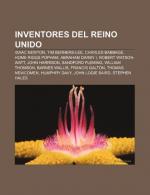|
This section contains 305 words (approx. 2 pages at 300 words per page) |
1678?-1717
English Engineer
Though his name is far from a household word, Abraham Darby can be considered one of the individuals most responsible for the explosive growth of the iron industry—and thus for the success of the Industrial Revolution. His coke-burning blast furnace, introduced in 1709, spelled the end for charcoal as a means of heating iron, and replaced it with a much hotter, more efficient resource.
Born near Dudley, Worcestershire, England, in 1678, Darby went to work in the coppersmelting industry in the city of Bristol. At that time, the iron industry used charcoal for heating, but with charcoal it was difficult to produce a high, sustained level of heat. By contrast, the copper industry used coke, a derivative of coal produced by removing the sulfur and combustible impurities. Thus, coke never burst into flame, but rather delivered a very high, constant level of heat.
In 1708 Darby—then about 30 years old—opened the Bristol Iron Works Company near the village of Coalbrookdale in the upper Severn River Valley of western England, where supplies of coal and coke were plentiful. During the following year, he began producing small iron products such as cooking utensils with his coke-burning blast furnace. News of the Darby process was slow to catch on, but in time the inventor Thomas Newcomen (1663-1729) placed a large order for multi-ton cylinders to go in his steam-powered mine-pumping engines.
Darby died on March 8, 1717, before he was even 40 years old. Yet he had already managed to create a legacy, and his son Abraham II oversaw the production of the Newcomen cylinders for years to come. By 1758 the Darby foundry had produced 100 of the giant cylinders. The family business prospered even after the death of Abraham III in 1791, and in 1802 Richard Trevithick (1771-1833) commissioned the foundry to produce the first locomotive engine.
|
This section contains 305 words (approx. 2 pages at 300 words per page) |


